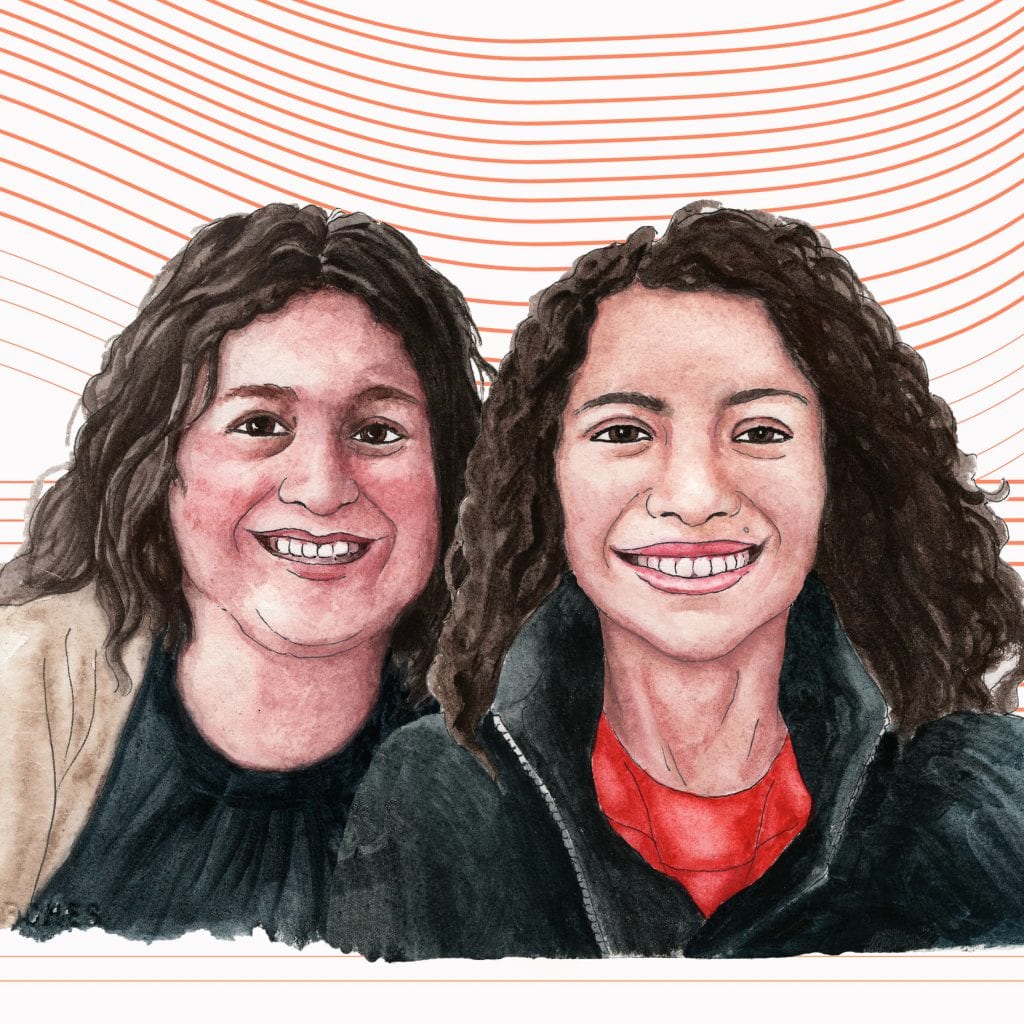In conversation
 Carolina Hernandez, assistant dean of students at Lehigh University, speaks with Lehigh student Stella Garriga about their career journeys, their South Bethlehem community and what gives them hope for the future. The two work together in the Community Service Office.
Carolina Hernandez, assistant dean of students at Lehigh University, speaks with Lehigh student Stella Garriga about their career journeys, their South Bethlehem community and what gives them hope for the future. The two work together in the Community Service Office.
Transcript
Carolina: My parents fled Cuba as refugees, so as the first generation here, there was a lot of pressure from my family to be either a lawyer or a doctor, and I went to college thinking I was going to be a lawyer and hated every single minute of it. And then I realized that my family sacrificed so much to give me the opportunity to do a job that I love — working on a college campus as an assistant dean of students and directing the Community Service Office. And I’m excited to come to work every single day because I get to work with students like you and the best community in the world here in South Bethlehem.
Stella: I also went the path of like, I guess I got to be a doctor because that’s gonna make my parents happy. But after working in the Community Service Office at Lehigh, there needs to be, at least for me, a sense of community in what you do. Now, my challenge has been finding a career that takes that science aspect that I like, but still using what we have learned in the Community Service Office to benefit the community around us. But I still want to write a book.
Carolina: You could still write a book. You can do it all, girl! How would you describe the Lehigh Valley?
Stella: I think the Lehigh Valley’s unique in how diverse it is in racial demographics, socioeconomic demographics. There’s such a wide range here. Through Lehigh and through the Community Service Office, we have a really amazing opportunity meeting the needs of all those different people.
Carolina: I agree. I love the Lehigh Valley. The Bethlehem area school district has amazing leadership, amazing educators. A year ago, the superintendent Dr. Roy was talking about how we’re gonna be anti-racist in our work and if you’re racist, then get out. And knowing that in South Bethlehem, 90% of our families are on free and reduced lunch, what did he do? He was already setting up ways to bring internet across the entire community. Knowing that we are carrying this legacy forward, especially living in such a tenuous time, what gives you hope?
Stella: Especially in the wake of the world’s reaction to George Floyd, this has been something I’ve been battling with, is this sense of hopelessness. How do we go from here? This country is in such a divide. What can I do to feel more hopeful because it’s really hard. And I think what gives me hope is people that are willing to continue fighting. I would hope if I have children one day that they are committed to continue this legacy of not standing with oppression and not being okay with what they’re seeing. How about you, Carol?
Carolina: What gives me hope is always you all—that relentlessness to challenge faculty, challenge me, challenge everyone to amplify voices. Whose stories are we telling? Whose narratives are we guided by and how can we include a multitude of voices and perspectives and not shy away from challenging conversations? I think that’s the stuff that gives me hope. It’s that fire that you see in students that to me is everything. I love you and I appreciate you and thank you for chatting with me.
Stella: I love you more. Thank you for this, too.





